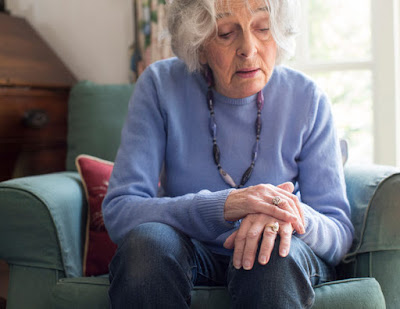Parkinson’s disease is a degenerative condition of the nervous system affecting 10 million people around the world. With 60,000 Americans — most of whom are seniors — diagnosed with this disease each year, it’s important to know how to recognize the symptoms to ensure quality treatment as soon as possible. Here is a quick guide from the team at our CCRC in Sussex County in New Jersey.
9 Symptoms of Parkinson’s Disease
Symptoms of this condition vary from person to person and may be almost unnoticeable during its very early stages. They include:
- Tremors or shaking in a limb, often in the hand or fingers, even when it is at rest.
- A pill-rolling tremor, rubbing between the thumb and forefinger.
- Slowed movement, including shorter steps, dragging feet, and tasks becoming more time-consuming.
- Posture becoming stooped.
- Development of balance issues.
- Muscle stiffness in any part of the body, reducing range-of-motion and causing pain.
- Slurred speech, speaking in monotone, loss of speech inflections, or speaking softly.
- Difficulty writing and writing smaller than usual.
- Reduced automatic movements like blinking or smiling.
If you notice any of these symptoms in yourself or in a loved one or neighbor, it’s important to speak to a medical professional. While it may not result in a Parkinson’s diagnosis, these can indicate other underlying conditions that may require treatment.
4 Causes of Parkinson’s Disease
There are several risk factors linked to this condition, including:
- Certain genetic mutations and gene variations. A family history of Parkinson’s is important to note.
- While some cases of the disease have been diagnosed in young adults, it is more common in people over age 50.
- Men are more likely to develop Parkinson’s than women.
- The presence of Lewy bodies. These are clumps of specific substances found within brain cells and researchers believe that these hold an important clue to the cause of this condition.
Treatment for Parkinson’s Disease
As there is no known cause for the disease, there is no cure for the condition, however, there are medications and lifestyle changes which have proven effective at helping control symptoms. Physical therapy, aerobic exercise and speech therapy are also recommended.
Live Life to the Fullest with Supportive, Scalable Services at our Continuing Care Retirement Community (CCRC) in Sussex County, New Jersey
Bristol Glen is an independent senior living community in Sussex County that provides seniors with comfortable living choices that free up time to enjoy life.
Contact us to find out more about our CCRC and assisted living facilities, amenities and services. Please visit our website at https://bristolglen.umcommunities.org/ and book your visit today.
Original content posted on https://umcommunities.org/blog/parkinsons-disease-symptoms-causes-and-treatment/

No comments:
Post a Comment